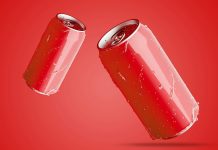
A freshly brewed revelation has steamed its way into the world of coffee research.
For those tethered to their daily caffeine infusion, new findings from the University of Sydney hint at an unexpected ally in managing the clawing pangs of caffeine withdrawal: decaffeinated coffee.
In a study steeped in both behavioral psychology and addiction medicine, Dr. Llew Mills and his research consortium have brewed some thought-provoking findings, as unveiled in the Journal of Psychopharmacology.
Interestingly, decaffeinated coffee demonstrated a significant capacity to mollify caffeine withdrawal symptoms, such as headaches, mood disruptions, and irritability – even when participants knew they were sipping on a caffeine-free alternative.
Navigating Through the Study: Sipping on Decaf’s Potential
With 61 heavy coffee drinkers as participants, all consuming three or more cups daily, the researchers navigated through a 24-hour caffeine abstention period, meticulously measuring ensuing withdrawal symptoms.
Post-abstention, participants were distilled into three groups: one sipping decaf under the illusion it was caffeinated, another knowingly consuming decaf, and a third, a control group, hydrating with water.
A subsequent examination of their withdrawal symptoms 45 minutes post-beverage introduced a fascinating discovery: even those aware they were indulging in decaf reported a palpable diminishment in withdrawal symptoms.
The Unexpected Power of Placebo and Conditioning
As Dr. Mills elucidates, the group deceived into believing their decaf was a regular coffee exhibited a stark reduction in withdrawal symptoms, steeped in the potent power of the placebo effect.
Strikingly, even the group consciously sipping decaf witnessed a significant, albeit slightly more muted, alleviation of withdrawal symptoms – a phenomenon known as an open-label placebo effect.
A salient factor bubbling beneath these findings is the conditioned withdrawal-reduction effect, built upon years of associating the sensory experience of coffee consumption with withdrawal alleviation.
Dr. Mills suggests that the energizing uplift often attributed to our morning brew may essentially be a reversal of caffeine withdrawal.
Brewing Future Perspectives: Coffee, Conditioning, and Addiction Research
While the open-label placebo effect documented in the study may offer only a transient respite from withdrawal, Dr. Mills suggests that a cup of decaf might serve as a soothing balm for those aiming to trim their caffeine intake, helping navigate through the choppy waters of initial cravings and withdrawal.
Moreover, this research percolates beyond the realm of caffeine and into broader conversations about addiction, withdrawal, and the intertwining of expectation, sensory experience, and physiological response.
The findings harbor promising implications for exploring novel treatments for addiction that harness the nuanced power of placebo effects and conditioned responses.
As we ponder over our next cup of coffee, be it caffeinated or not, this research invites us to reflect upon the intricate dance of sensory, psychological, and physiological factors that shape our experiences, dependencies, and potential pathways toward managing them.
Consequently, as we delve deeper into the complexities of addiction, such studies forge new pathways, allowing us to explore innovative approaches to understanding and managing our relationship with various substances, from the benign to the perilous.
If you care about nutrition, please read studies about the best time to take vitamins to prevent heart disease, and vitamin D supplements strongly reduce cancer death.
For more information about nutrition, please see recent studies about plant nutrient that could help reduce high blood pressure, and these antioxidants could help reduce dementia risk.
Follow us on Twitter for more articles about this topic.
Copyright © 2023 Knowridge Science Report. All rights reserved.



